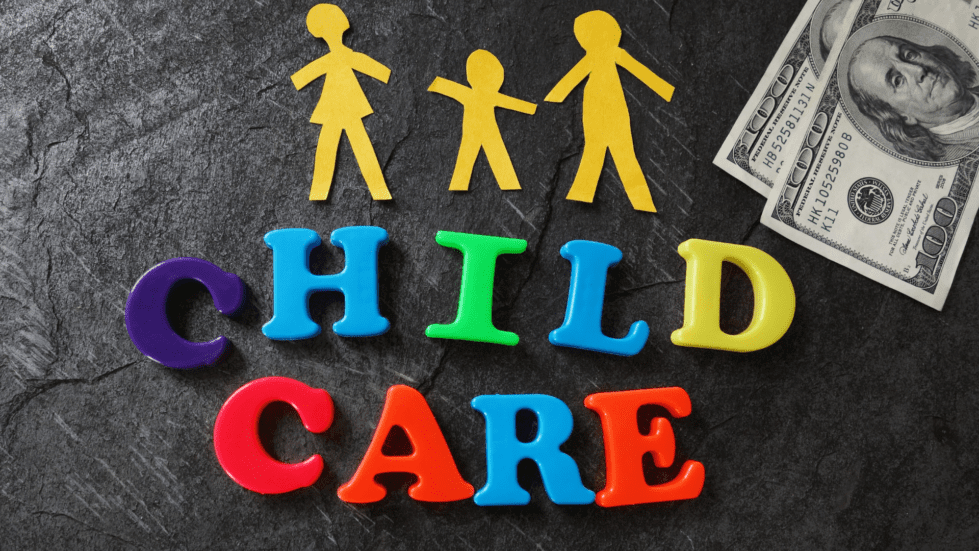

A bill that would increase the amount the state pays to Kent and Sussex counties for child care was heard in committee.
A bill that would force the state to pay Kent and Sussex County child care programs the same fees that it pays New Castle ones seems headed to the Senate floor.
No one spoke against Senate Bill 59, sponsored by Sen. Kyle Evans Gay, D-Arden, when it came up Wednesday in the Senate Health & Social Services Committee.
Gay said it’s important for children in Delaware that the bill pass.
“In order to expand child care services statewide, in order to build high quality environments, in order to invest early in our smallest Delawareans, we need to start by shoring up what we currently have,” she said. “Making sure that providers can invest in classrooms, can invest in staff, that we can recruit staff, that we can do that statewide.”
A bipartisan list of legislators, including Republican Minority Whip Brian Pettyjohn, R-Georgetown and Senate Minority Leader Gerald W. Hocker, R-Oceanview, are cosponsors.
The Senate “walks” its bills around for legislators to sign rather than taking a public vote and in late afternoon reported online that the bill passed with four favorable votes and two on its merits, meaning the voter thought it should be heard but didn’t want to overtly support it.
It has been assigned to the Finance Committee, which must pass it before heading to the Senate floor.
The bill focuses on a state program called purchase of care, which helps lower-earning workers pay for child care so they can continue to work.
Related story: Child care report: First State lacks affordable options
Related story: Delaware offers second round of child care worker bonuses
It comes at a time when child care is a huge topic among employers who say a lack of affordable child care is keeping workers out of the job market. It also comes as the state seeks to increase the quality of child care services.
Several agencies in recent years have pointed out problems with availability of affordable child care, including the fact that the state program has been paying New Castle County child care more than it does Kent and Sussex.
According to a 2021 Delaware Cost of Care Study, the state purchase of care program pays an average of $7,002 per student in Kent and Sussex counties and $7,147 in New Castle County.
The bill’s fiscal note says the change would cost the state $23,821,775 in the 2024 fiscal year, $22,864,414 in the 2025 fiscal year, and $24,007,634 in the 2026 fiscal year.
It assumes that costs will increase by 5% every year.
Child Care Providers React
During the hearing, 16 people spoke in support of the bill, including representatives of the YMCA of Delaware, the Delaware State Education Association, and the Little School Kids Cottage.
Agencies such as the YMCA and the Boys and Girls Clubs are among those who accept purchase of care funds in their child care programs.
Georganne Buccine, the vice president of youth development at the YMCA of Delaware, said children should have equal access to child care.
“A child in Kent and Sussex deserves the same support for positive educational outcomes as offered to their counterparts in the north,” Buccine said. “They deserve the same quality care opportunities and experiences, regardless of location and regardless of income or race.”
Taylor Hawk, director of Legislative and Political Strategy for the Delaware State Education Association, said the bill is needed to keep staffing levels high at child care facilities.
“For years providers in Kent and Sussex have worked hard to provide quality early learning and enriching afterschool programs while receiving lower reimbursement rates,” Hawk said.
Additional funding will help the programs hire and retain staff, which helps meet the developmental needs of each child. It will pay off throughout the children’s education, he said.
Lisa Ratliff, co-owner of the Kids Cottage, said the most critical period for brain development is birth to age five.
“If we as a state do not make the commitment to invest in our birth to five year olds, then we are just gonna continue to throw it down the line and to pay for the issues that arise at a later age,” Ratliff said. “If we can address this issue, birth to five, we as the early childhood educators, we can fix a lot of the issues that happen when the children enter kindergarten or second or third grade.
]
Share this Post


